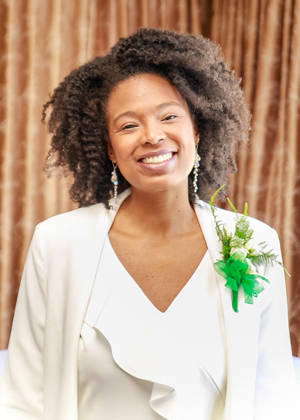
By Rev. Donald L. Perryman, Ph.D.
The Truth Contributor
Life runs in a narrow path to balancing act, convincing tact, and satisfying fact.
– Santosh Kalwar
Wednesday, February 28, 2024, is “Decision Day” for Toledo City Council, and nothing has the potential to be more ironic (or even caustic)!
As Black History Month draws to a close, the Toledo City Council stands poised to make a decision that will shape its composition and reflect the community’s values.
At the council meeting scheduled for Wednesday, February 28, the members will announce their selections to fill two significant vacancies. These openings were created by the departures of Tiffany Preston Whitman, who transitioned to a major DEI role in the mayor’s administration, and Katie Moline, who succeeded Anita Lopez as the Lucas County Auditor.
Yet, Council’s choices carry a weight that transcends the mere act of filling vacancies. They symbolize Toledo’s commitment to diversity, equity, and inclusion (DEI) at a time when the spotlight on these issues is intensely bright.

The departure of Whitman, an African American female council member, has left only three remaining Black members, the lowest in decades. With a heightened awareness, the community is insistent and rightly expects that Preston’s replacement should reflect the diversity she represented. This sentiment resonates deeply within the African American community and among advocates for broader representation in local governance.
The council, however, faces a delicate balancing act.
On one side, Erin Kramer’s relentless campaigning and deep-rooted connections within the Democratic Party and its associated movements have positioned her as a frontrunner, challenging earlier predictions and setting the stage for a potential upset for Mac Driscoll, once considered a shoo-in.
Kramer is known for her extensive community engagement and leadership in advocating for sensible gun reforms and has emerged as a strong candidate after aggressively lobbying for the appointment. Her involvement in the Democratic Party and dedicated campaign support for various elected council members currently seated around that “hallowed horseshoe-shaped dais” have made her a familiar and respected figure with the politicians making the decisions. Her efforts, mainly through Moms Demand Action, have not only made her a prominent figure in Toledo’s political landscape but also a likely choice to secure one of the open council positions.
On the other side, the race for the second vacancy reveals support split among several candidates, all being lobbied by various constituencies. Also among those under consideration are Brittany Darshae Jones, Ph.D., Erin Baker, DeVon Overton, and Raina Dawson, all African American and female.
With each offering compelling qualifications, the council faces the challenge of making a selection that aligns with the community’s expectations for diversity and representation. This difficulty is compounded by the pressing need to reflect upon the significance of the vacancies being filled at the end of Black History Month, a time when the spotlight on racial equity and inclusion is particularly intense.
Councilwoman Carrie Hartman’s advocacy for filling both vacancies with women to maintain the council’s female majority adds another layer of consideration to the decision-making process. This stance not only emphasizes gender representation but also aligns with the broader societal push toward ensuring women’s voices are heard and valued in leadership positions.
As the council prepares to reveal its choices, the implications extend far beyond the immediate impact on its composition. Selecting replacements for Whitman and Moline is an opportunity for Toledo to reaffirm its commitment to principles of diversity and inclusion, particularly as it coincides with the culmination of Black History Month. The decisions made will be seen as a reflection of the city’s values and its dedication to fostering an inclusive and representative governance structure.
This moment is not just about who will fill two vacancies; it’s about signaling Toledo’s direction and priorities at a time when the call for meaningful representation has never been louder.
As Toledo City Council deliberates, the African American community watches.
I expect the Hartman-led city council will carefully consider the Black community’s expectations, diversity, and the need for representation in governance while attempting to shape Toledo’s identity as an inclusive and forward-thinking community.
Thus, Erin Kramer will likely fill one council seat. An African American female such as Brittany Jones, Ph.D., or Erin Baker of the Toledo Lucas County Public Library will fill the second vacancy. United Way of NW Ohio’s Devon Overton is also a worthy choice.
While Mac Driscoll’s strong candidacy and previous status as a frontrunner positions him as a formidable alternative, unless council’s deliberations take an unexpected turn, he likely draws the short straw and has to wait for another opportunity.
Contact Rev. Donald Perryman, PhD, at drdlperryman@centerofhopebaptist.org
